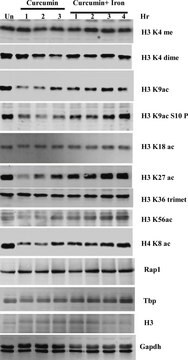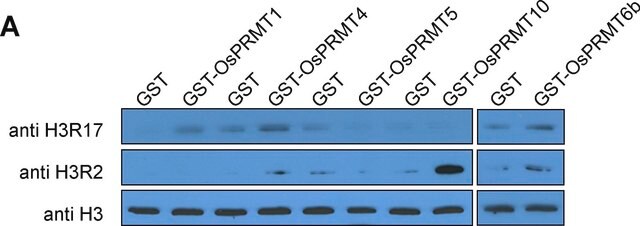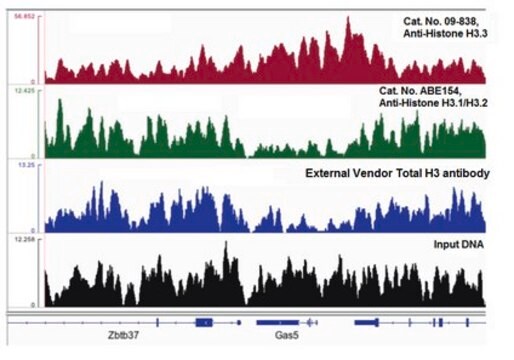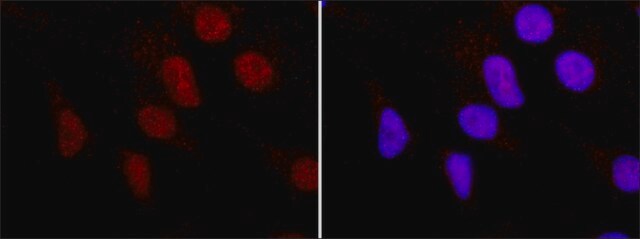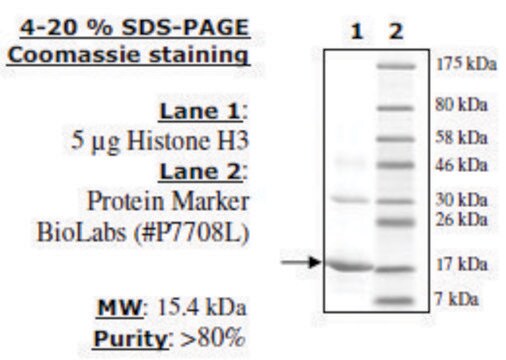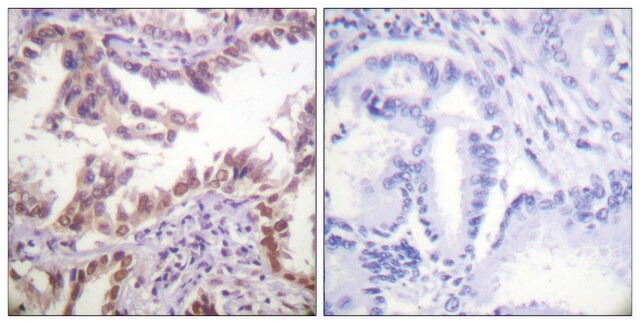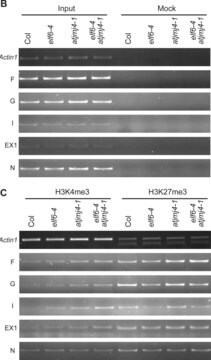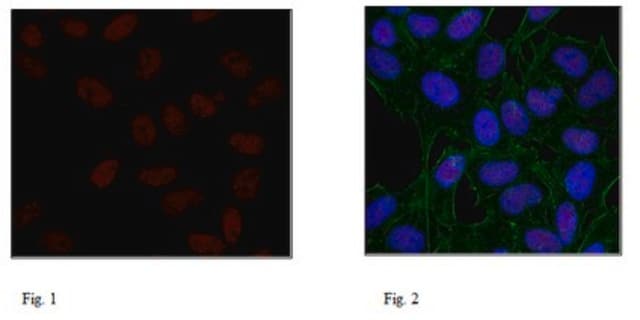H9289
Anti-Histone H3 (N-terminal) antibody produced in rabbit

affinity isolated antibody, buffered aqueous solution
Synonym(s):
Histone H3 Detection, Histone H3 Detection Antibody, Rabbit Anti-Histone H3
About This Item
Recommended Products
biological source
rabbit
Quality Level
conjugate
unconjugated
antibody form
affinity isolated antibody
antibody product type
primary antibodies
clone
polyclonal
form
buffered aqueous solution
mol wt
antigen ~17 kDa
species reactivity
human
enhanced validation
independent
Learn more about Antibody Enhanced Validation
technique(s)
indirect immunofluorescence: 2-4 μg/mL using A431 cells.
western blot: 0.2-0.5 μg/mL using PC12 cell lysate and A431 cell lysate.
shipped in
dry ice
storage temp.
−20°C
target post-translational modification
unmodified
Gene Information
human ... HIST1H3A(8350)
General description
Immunogen
Application
Biochem/physiol Actions
Physical form
Storage and Stability
Other Notes
Disclaimer
Not finding the right product?
Try our Product Selector Tool.
Storage Class
10 - Combustible liquids
wgk_germany
WGK 2
flash_point_f
Not applicable
flash_point_c
Not applicable
ppe
Eyeshields, Gloves, multi-purpose combination respirator cartridge (US)
Certificates of Analysis (COA)
Search for Certificates of Analysis (COA) by entering the products Lot/Batch Number. Lot and Batch Numbers can be found on a product’s label following the words ‘Lot’ or ‘Batch’.
Already Own This Product?
Find documentation for the products that you have recently purchased in the Document Library.
for subsequent intramolecular modification events
Our team of scientists has experience in all areas of research including Life Science, Material Science, Chemical Synthesis, Chromatography, Analytical and many others.
Contact Technical Service
